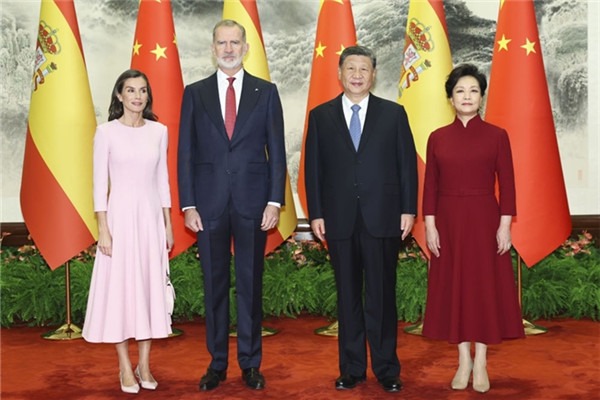Experts call for cooperation on tech upgrades

Stronger international cooperation and the promotion of open-source technologies are needed to manage the risks of artificial intelligence and prevent a widening "intellectual divide", according to experts attending the 12th Beijing Xiangshan Forum in September.
They said that while AI is a key transformative technology reshaping the global economy, its governance is lagging, threatened by geopolitical fragmentation and unequal access to resources.
The multidimensional challenges of AI governance were outlined by Chen Zhimin, vice-president of Fudan University. He said that the world is facing a "collective dilemma", as different national approaches have created "fragmentation" and incompatible standards, which are deepening the digital divide.
Chen, who is also the executive director of Fudan's Center for Global AI Innovative Governance, said that a few developed countries and companies monopolize core resources and, for geopolitical and economic considerations, are imposing technology restrictions that unfairly compress the development space for the Global South.
"China, in contrast to development paths led by some United States tech companies, is advancing AI under an open-source and open-cooperation approach and has proposed an international initiative on open-source collaboration in AI," said Chen, highlighting that the country is seeking to use open source as a bridge to work with partners worldwide.
He cited DeepSeek R1, a high-profile Chinese AI model that has utilized an "open-source, low-cost and high-performance" strategy, which offers a new paradigm for global AI development.
The model has helped lower adoption thresholds, sped up technology diffusion and innovation, and narrowed the intelligence divide between the Global North and South as well as across regions, Chen said.
The importance of open source was also underscored by Lampros Stergioulas, a UNESCO chair and professor of data science at The Hague University of Applied Sciences in the Netherlands, as he noted that open source enables cross-border sharing and collaboration.
He added that stronger international cooperation is needed to upgrade technologies and drive digital transformation, alongside capacity-building in areas such as AI education, to help the Global South bridge the digital divide.
Song Haitao, president of the Shanghai Artificial Intelligence Laboratory, underlined the urgency of a cooperative approach in AI governance.
From a technical perspective, he explained that AI applications are rapidly evolving from "weak AI", like data perception and storage, to "strong AI", such as driverless vehicles and intelligent robots, and progressing toward a "super AI" that will definitely produce "new independent consciousness and more autonomous innovation".
This powerful technology is already being applied in sensitive areas, including military development, Song said. He highlighted that global governance for military AI must be a "basic consensus" and should be conducted under the United Nations framework, calling for broader global cooperation.
- Experts call for cooperation on tech upgrades
- Framework seeks to keep AI in line
- Games mascots steal the spotlight with their athletic fin-esse
- Xinjiang attracts young entrepreneurs with economic incentives
- Japan blasted over remarks on Taiwan
- PLA releases 26-minute microfilm to mark 76th anniversary of Air Force





































